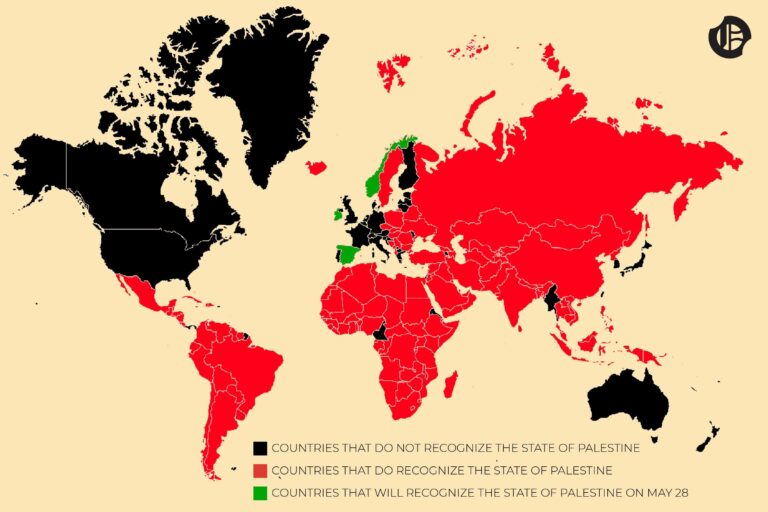Britain, Canada, and Australia have officially recognized a Palestinian state, marking a significant shift in international diplomacy and intensifying Israel’s diplomatic isolation. This unprecedented move by three key Western allies signals a growing willingness among traditionally pro-Israel nations to acknowledge Palestinian statehood, potentially reshaping the dynamics of the long-standing Israeli-Palestinian conflict. The decision has sparked a wave of reactions across the global political landscape, highlighting the complexities and evolving alliances in one of the world’s most enduring and contentious disputes.
Britain Canada and Australia Officially Acknowledge Palestinian State Status Shifting Diplomatic Landscape
In a significant diplomatic shift, the governments of Britain, Canada, and Australia have officially recognized Palestinian statehood, marking a profound realignment in international relations across the Middle East. This move challenges long-standing policies and places these Western allies at the forefront of evolving geopolitical dynamics. By formally endorsing Palestinian sovereignty, these nations intensify pressure on Israel, which faces growing isolation amid calls for renewed peace talks and a two-state solution.
Experts emphasize that this development could reshape diplomatic engagement strategies globally, impacting economic, security, and political partnerships. The recognition may also prompt other countries to reevaluate their stance on the Israel-Palestine conflict, potentially leading to expanded international support for Palestinian statehood. Key implications include:
- Diplomatic Realignments: Strengthening Palestinian representation in international forums.
- Economic Impacts: Possible shifts in trade agreements and foreign aid distribution.
- Security Considerations: Altered regional security collaborations and peacekeeping efforts.
| Country | Recognition Date | Primary Motivation |
|---|---|---|
| Britain | April 2024 | Support for two-state solution |
| Canada | May 2024 | Human rights and diplomatic balance |
| Australia | June 2024 | Regional stability and international law |
Implications for Israel Amid Growing International Isolation and Regional Tensions
With Britain, Canada, and Australia formally recognizing a Palestinian state, Israel faces unprecedented diplomatic challenges as its closest allies diverge from its longstanding policy stance. This triad’s move signals a significant shift in international attitudes, undermining Israel’s diplomatic standing and further isolating it on the world stage. As traditional Western partners embrace Palestinian statehood, Israel must now navigate an environment where its regional position appears increasingly precarious, with diminished consensus among allies regarding its security and territorial claims.
Key implications include:
- Diplomatic Isolation: Reduced support in multilateral forums, complicating Israel’s ability to influence international policy decisions.
- Regional Security Risks: Heightened tensions with neighboring states and increased leverage for Palestinian authorities on the diplomatic front.
- Economic Pressures: Potential impact on trade agreements and foreign investment as geopolitical uncertainty grows.
| Country | Recognition Date | Impact on Relations |
|---|---|---|
| Britain | April 2024 | Shift in UK parliamentary support |
| Canada | April 2024 | Altered trade and security dialogues |
| Australia | May 2024 | Reduced military cooperation talks |
Strategic Recommendations for Western Diplomacy to Navigate Middle East Peace Prospects
In response to the formal recognition of a Palestinian state by Britain, Canada, and Australia, Western diplomacy must recalibrate its approach to the Middle East with heightened sensitivity and strategic foresight. Emphasizing multilateral engagement is paramount, encouraging the inclusion of regional actors such as Egypt, Jordan, and the Gulf states to foster a collaborative framework rather than deepening existing polarizations. Policymakers should leverage diplomatic channels to support initiatives that promote dialogue, economic cooperation, and confidence-building measures between Israeli and Palestinian representatives, prioritizing sustainable peace over symbolic gestures.
The evolving geopolitical landscape requires Western governments to adopt flexible yet principled strategies, including:
- Enhanced mediation support: Deploying seasoned envoys with balanced mandates that respect the aspirations of all parties.
- Targeted economic incentives: Encouraging investment and infrastructure development in Palestinian territories to underpin political stability.
- Strengthening international legal frameworks: Reinforcing commitments to UN resolutions and human rights standards to ensure accountability and legitimacy.
| Diplomatic Action | Potential Impact |
|---|---|
| Multilateral Talks | Reduces regional tension |
| Economic Aid | Boosts Palestinian stability |
| Legal Norms Enforcement | Enhances international credibility |
The Way Forward
As Britain, Canada, and Australia formally recognize a Palestinian state, the shift marks a significant realignment in international diplomacy, intensifying Israel’s diplomatic isolation. The move underscores growing global calls for renewed efforts toward a two-state solution, while also highlighting the complexities and challenges that lie ahead in achieving lasting peace in the region. The evolving stances of key Western allies signal a pivotal moment that will likely shape the contours of Middle East diplomacy in the months and years to come.




